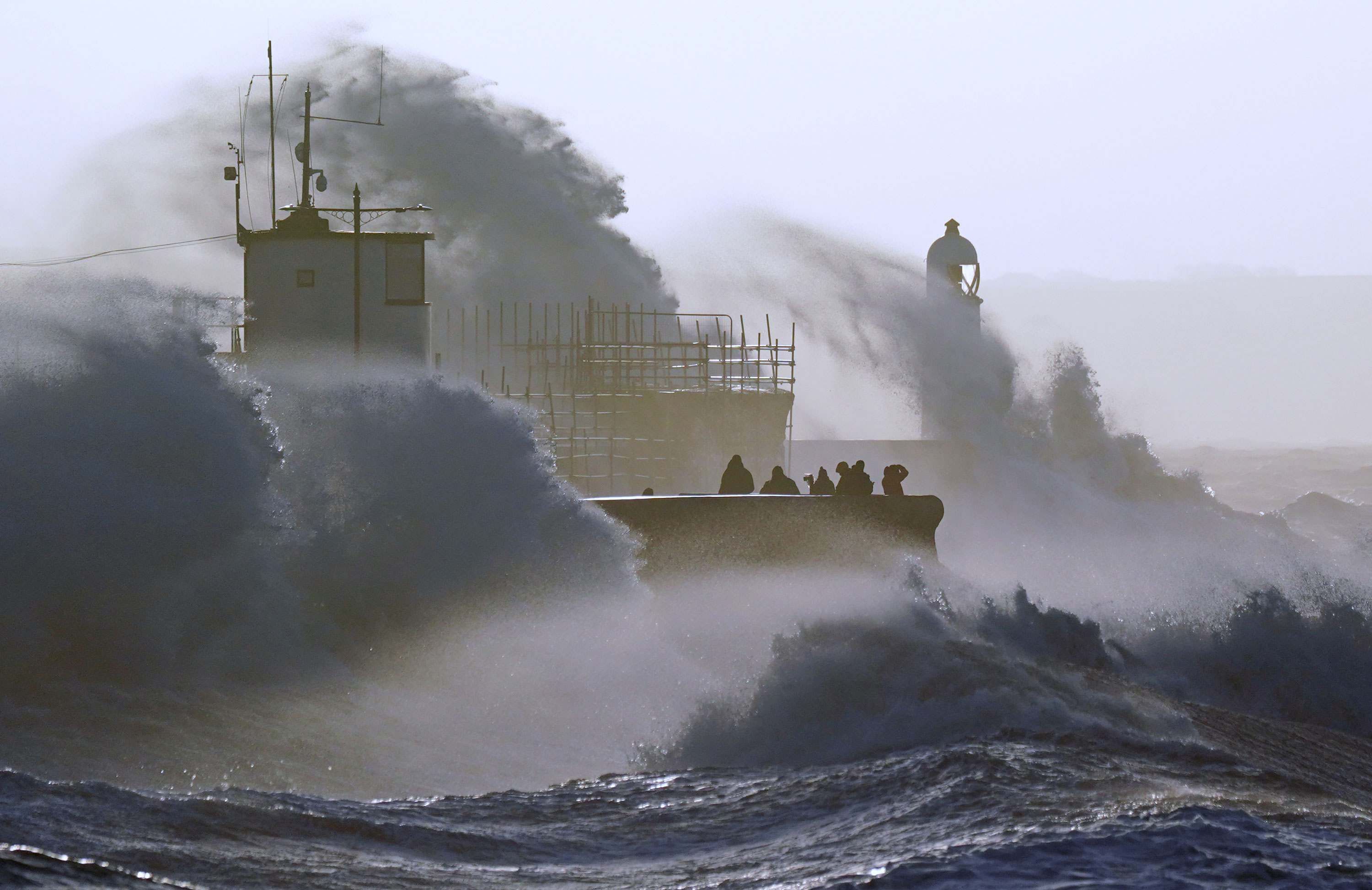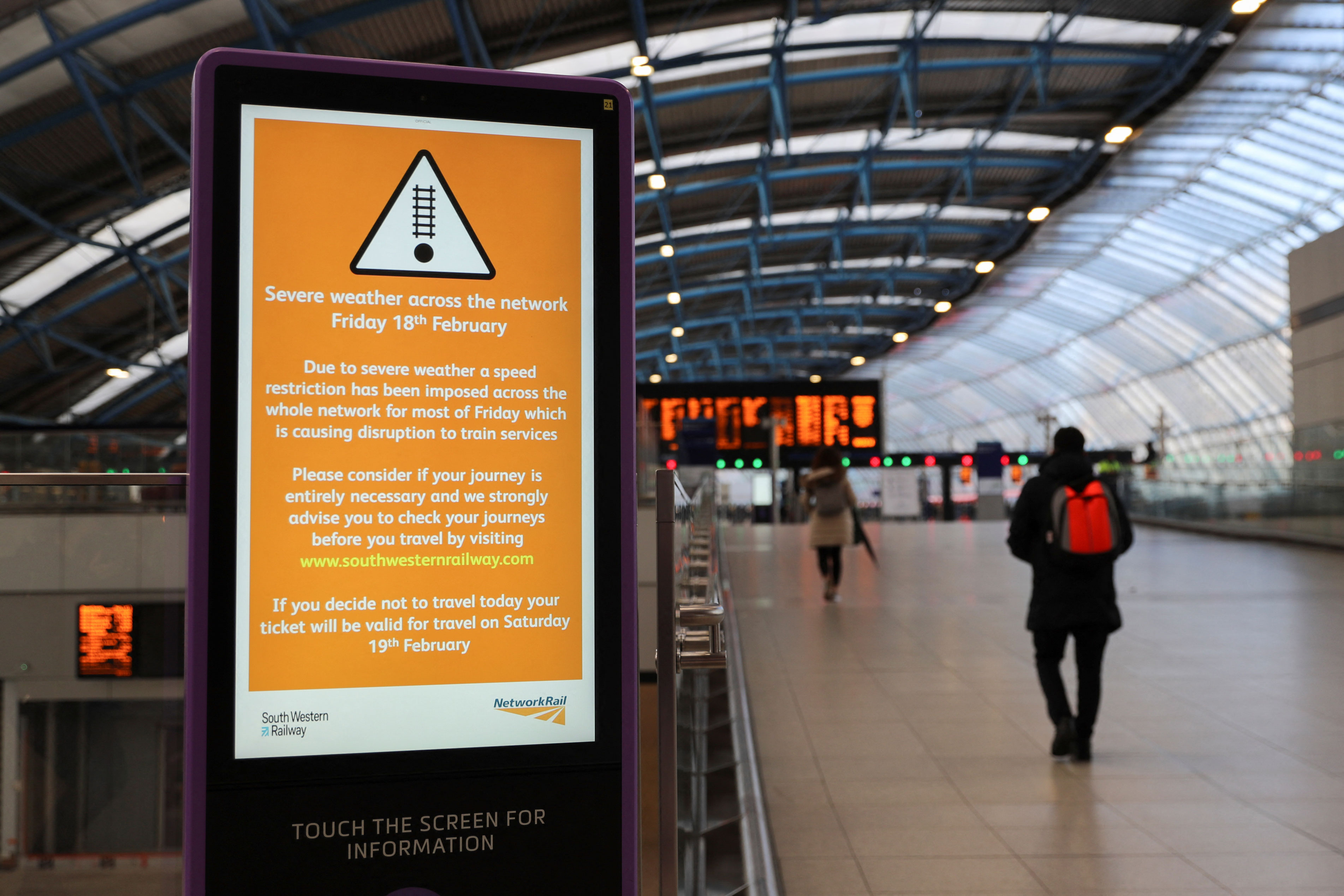Millions of people in the UK have been told to stay home for their own safety and dozens of flights were cancelled on Friday as storm Eunice made landfall in the country, bringing hurricane-force winds that ripped off a rooftop and crushed a vehicle in a London suburb.
The UK Met Office issued a rare "danger-to-life" red weather alert Thursday, and by Friday morning reported winds above 145km/hr, in what is forecast to be the country's worst storm in three decades.
A CNN reporter witnesses a rooftop flying off a home in the southwestern London area of Surbiton. The roof crushed a car parked on the street. Video footage showed a train electricity line hit by debris.
READ MORE: Hundreds of homes impacted by mass power outage across parts of Perth
https://twitter.com/metoffice/status/1494645935414165504?ref_src=twsrc%5Etfw
Social media video showed a lifeboat building with part of its rooftop blown off at Sennen beach in Cornwall, where strong winds were pushing waves above a seawall.
Authorities are expecting gusts that cause travel delays, power cuts and possible mobile phone coverage outages.
Meteorologists have also raised the possibility of a sting jet, the weather phenomenon which made the 1987 Great Storm so destructive and deadly. Eighteen people were killed in that storm and 15 million trees were blown down in winds that topped 100 mph.
A sting jet is a very narrow and concentrated blast of powerful, upper-level winds that can form inside powerful weather systems. It descends to the the Earth's surface and can last a few hours, potentially causing damage to life and property, according to CNN meteorologist Derek Van Dam.
"The 'sting' refers to the cloud formation it creates, which resembles a scorpion's stinger," he said.
The UK's Met Office issued its rare red weather alert for the southwest on Thursday, and expanded that early Friday to the southeast, which includes London. CNN observed heavy winds on the southern English coast as well.
A red warning means there is a potential threat to life from flying debris.
UK Prime Minister Boris Johnson's cabinet will hold an emergency meeting later Friday to discuss a response to the storm Eunice, a government spokesperson said in a statement to CNN.
British Airways looking at using bigger planes
Dozens of flights were cancelled at major airports Friday, including London Heathrow and London City Airport.
British Airways said it was grounding a number of planes and expected "significant disruption," but that most flights would go ahead as planned.
"Safety is our number one priority, and we're cancelling a number of flights," British Airways said in a statement.
https://twitter.com/British_Airways/status/1494611480611856389?ref_src=twsrc%5Etfw
The airline said it was looking at deploying larger aircraft where possible to better withstand the weather.
Rail companies have urged customers to reconsider their plans, with blanket speed restrictions in place for most lines across the country.
In a statement Friday, Network Rail warned of high winds blowing trees and other debris onto railway lines, which then block trains and cause delays and cancellations.
Eunice is the second storm in a week for the UK after Storm Dudley battered parts of Scotland, northern England and Northern Ireland Wednesday, leaving thousands of homes without power. Those homes have since been reconnected.
Hannah Cloke, professor of Hydrology at Britain's University of Reading said in a statement that the red alert was "the most severe and rarest type of warning issued by the Met Office."
"It reflects the greater confidence that forecasters have closer to the event that it will be really, really windy and that people are putting their lives at risk unless they take action now," she said.
Other parts of the country have been issued lower amber alerts, but Cloke warned that those areas would also be impacted by gusty winds.
Cole said earlier that people should not to take the red alert "lightly," as the winds could "uproot trees, which can block roads and crush cars or buildings. They can pick up roof tiles and hurl them around."
She added, "If you're hit by one of those you will be seriously hurt or killed. Wind that strong will sweep people and vehicles off streets, and topple electricity lines."
Source: 9News




